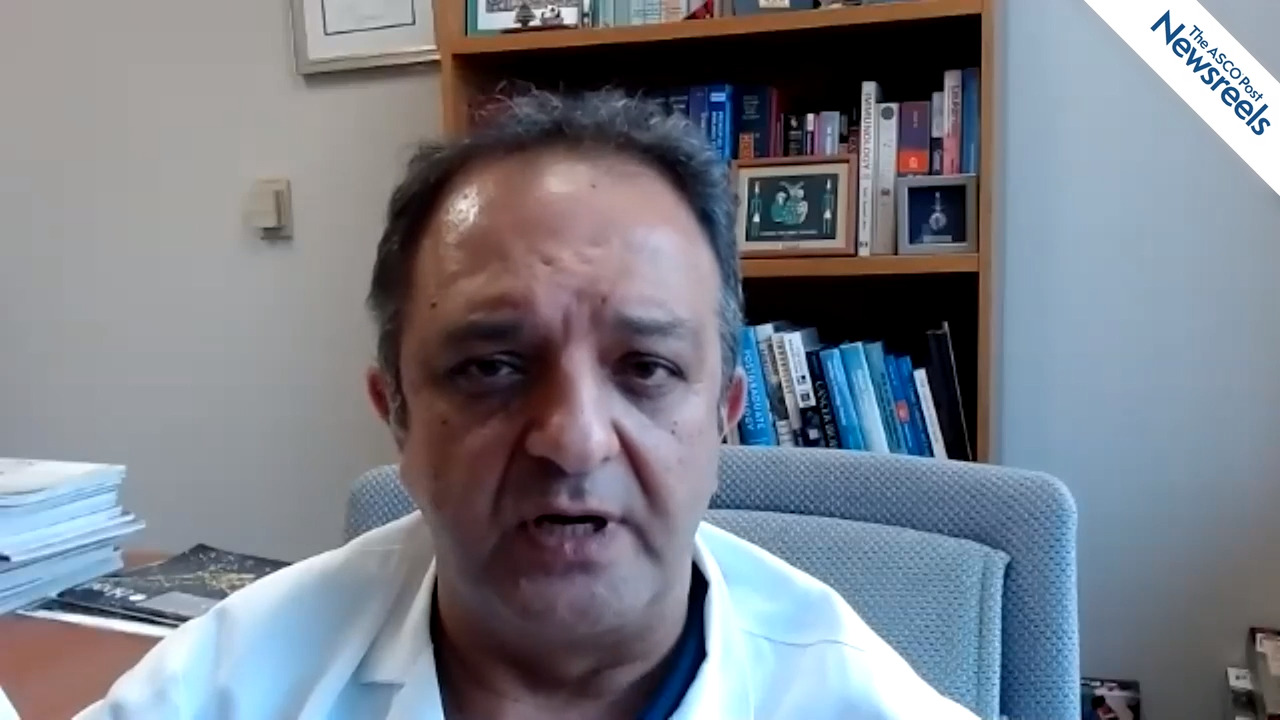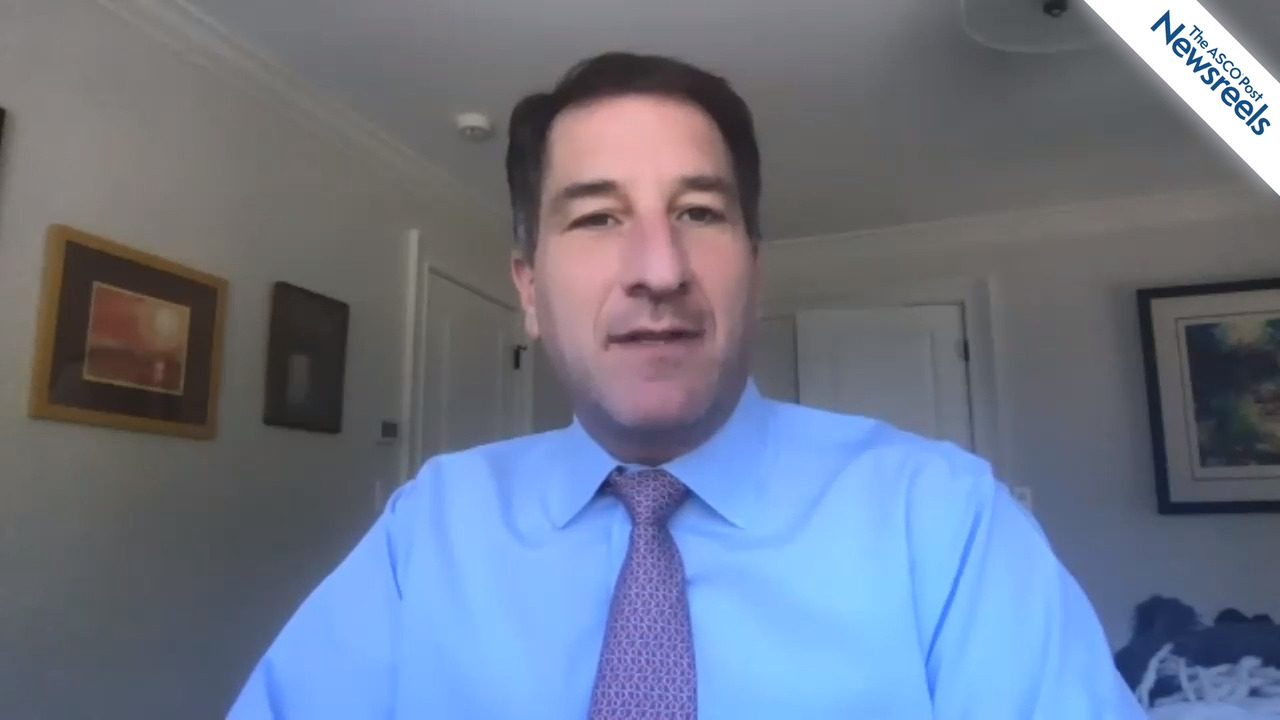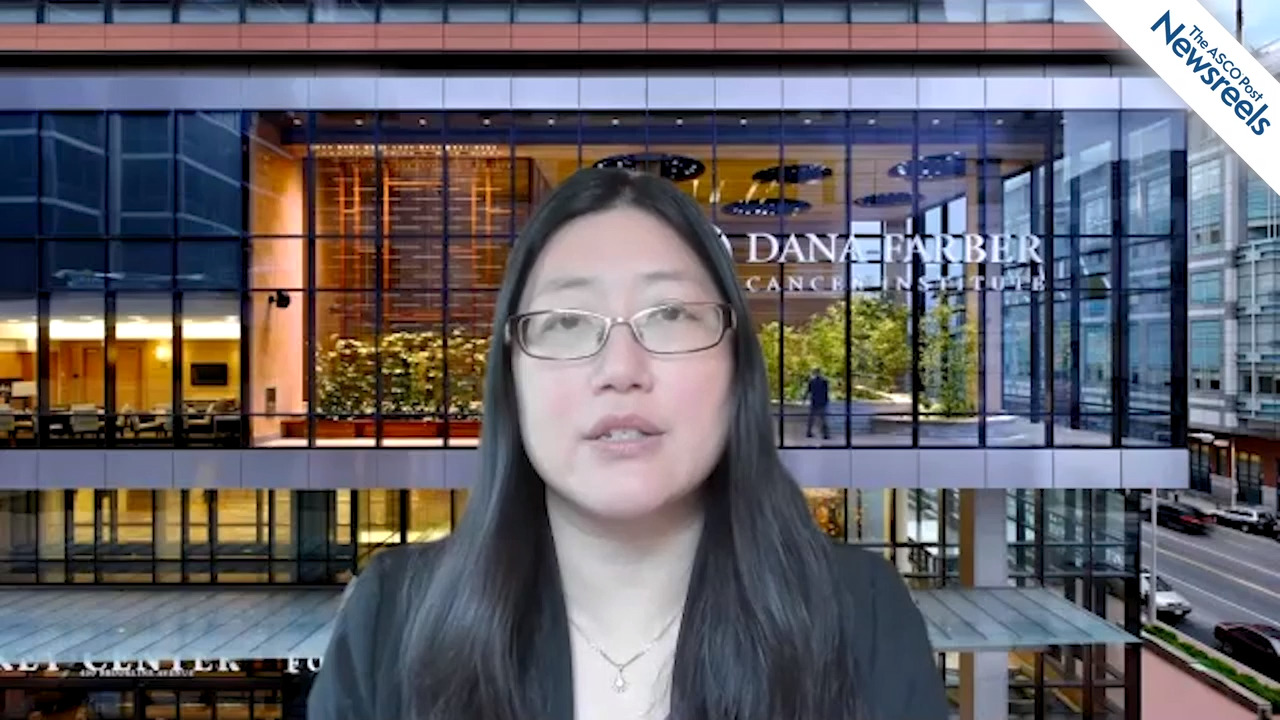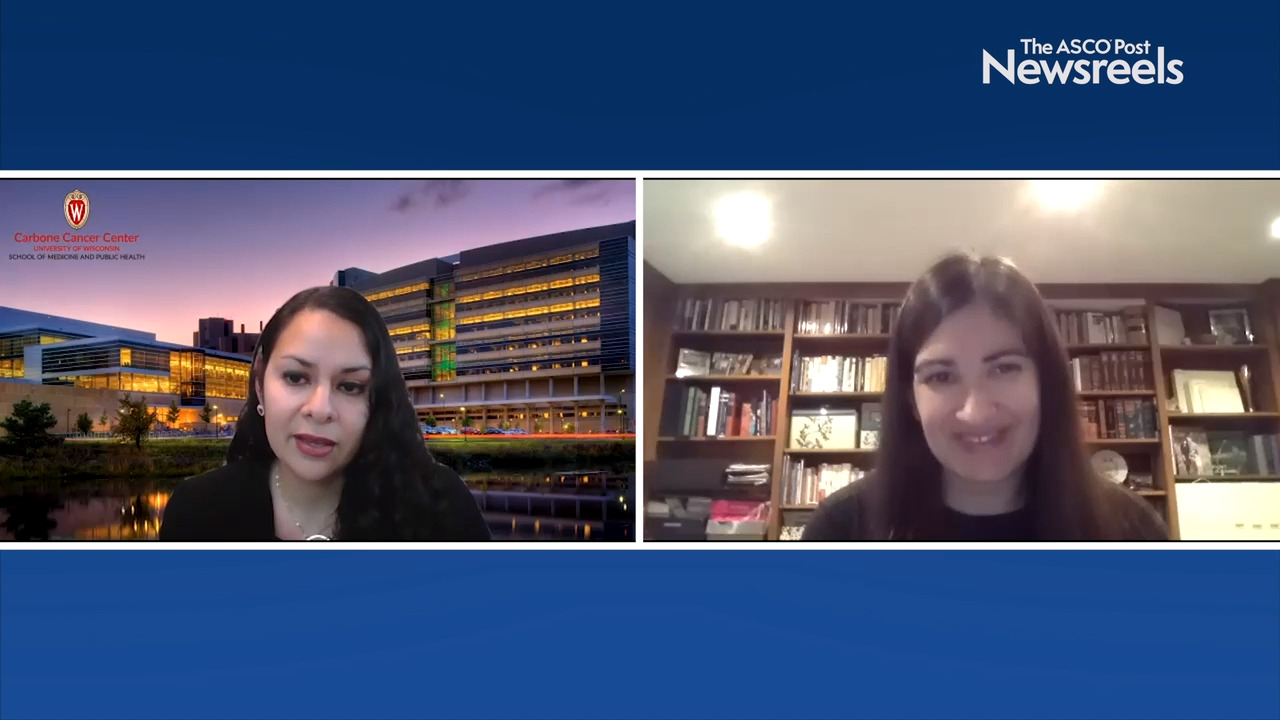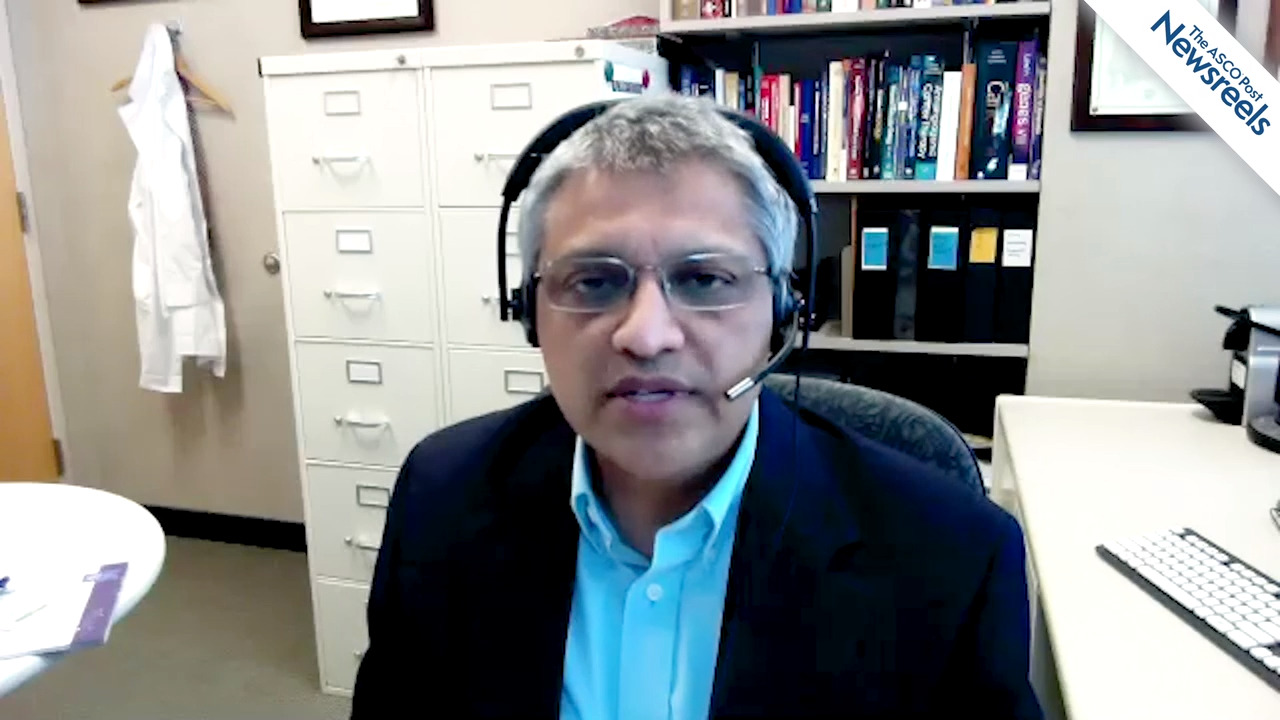Leora Horn, MD, on Thoracic Cancer and COVID-19: How Type of Cancer Therapy May Affect Survival
ASCO20 Virtual Scientific Program
Leora Horn, MD, of Vanderbilt University, discusses the results of the TERAVOLT study, launched by the Thoracic Cancers International COVID-19 Collaboration. It examined the impact of specific chemotherapy and immunotherapy regimens on hospitalization and risk of death in patients with thoracic malignancies who are also infected with COVID-19 (Abstract LBA111).
The ASCO Post Staff
Farhad Ravandi-Kashani, MD, of The University of Texas MD Anderson Cancer Center, discusses updates from a phase I dose-escalation study of AMG 330, a bispecific T-cell engager molecule. It showed early evidence of an acceptable safety profile, drug tolerability, and antileukemic activity, supporting further dose escalation in patients with acute myeloid leukemia (Abstract 7508).
The ASCO Post Staff
Jeffrey A. Meyerhardt, MD, MPH, of Dana-Farber Cancer Institute, discusses results from the CALGB/SWOG 80702 trial of celecoxib plus standard adjuvant therapy with fluorouracil, leucovorin, and oxaliplatin (FOLFOX). Adding celecoxib to standard chemotherapy did not significantly improve disease-free or overall survival (Abstract 4003).
The ASCO Post Staff
Nancy U. Lin, MD, of Dana-Farber Cancer Institute, discusses the HER2CLIMB study of patients with previously treated HER2-positive metastatic breast cancer that had metastasized to the brain. Adding tucatinib to trastuzumab and capecitabine doubled the intracranial response rate and reduced the risk of death by nearly half, compared with trastuzumab plus capecitabine (Abstract 1005).
The ASCO Post Staff
Reshma Jagsi, MD, DPhil, of the University of Michigan, and Narjust Duma, MD, of the University of Wisconsin Carbone Cancer Center, discuss the state of diversity in the hematology-oncology workforce, mechanisms that lead to inequities, promising interventions, and where the field should go next (Abstract 11000).
The ASCO Post Staff
Shaji Kumar, MD, of the Mayo Clinic, discusses findings from the ENDURANCE trial, which showed bortezomib, lenalidomide, and dexamethasone should remain the standard of care in patients with newly diagnosed standard- or intermediate-risk multiple myeloma, for whom early autologous stem cell transplant is not intended (Abstract LBA3).
